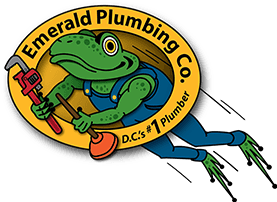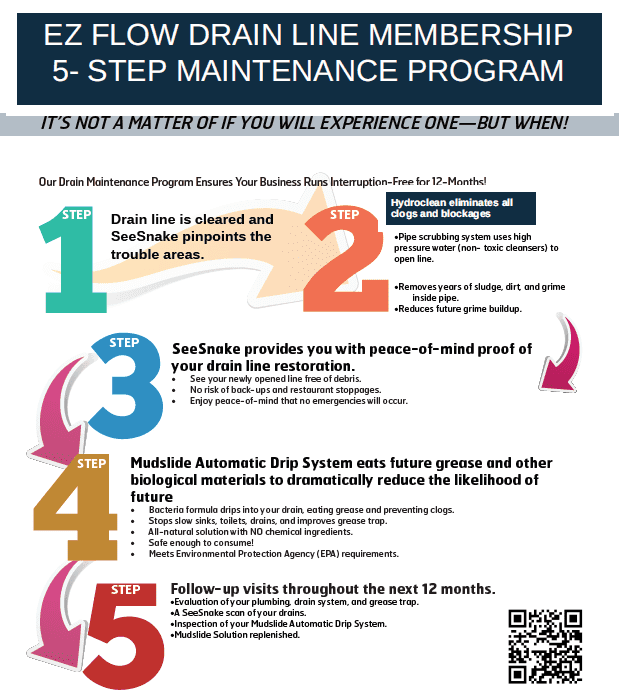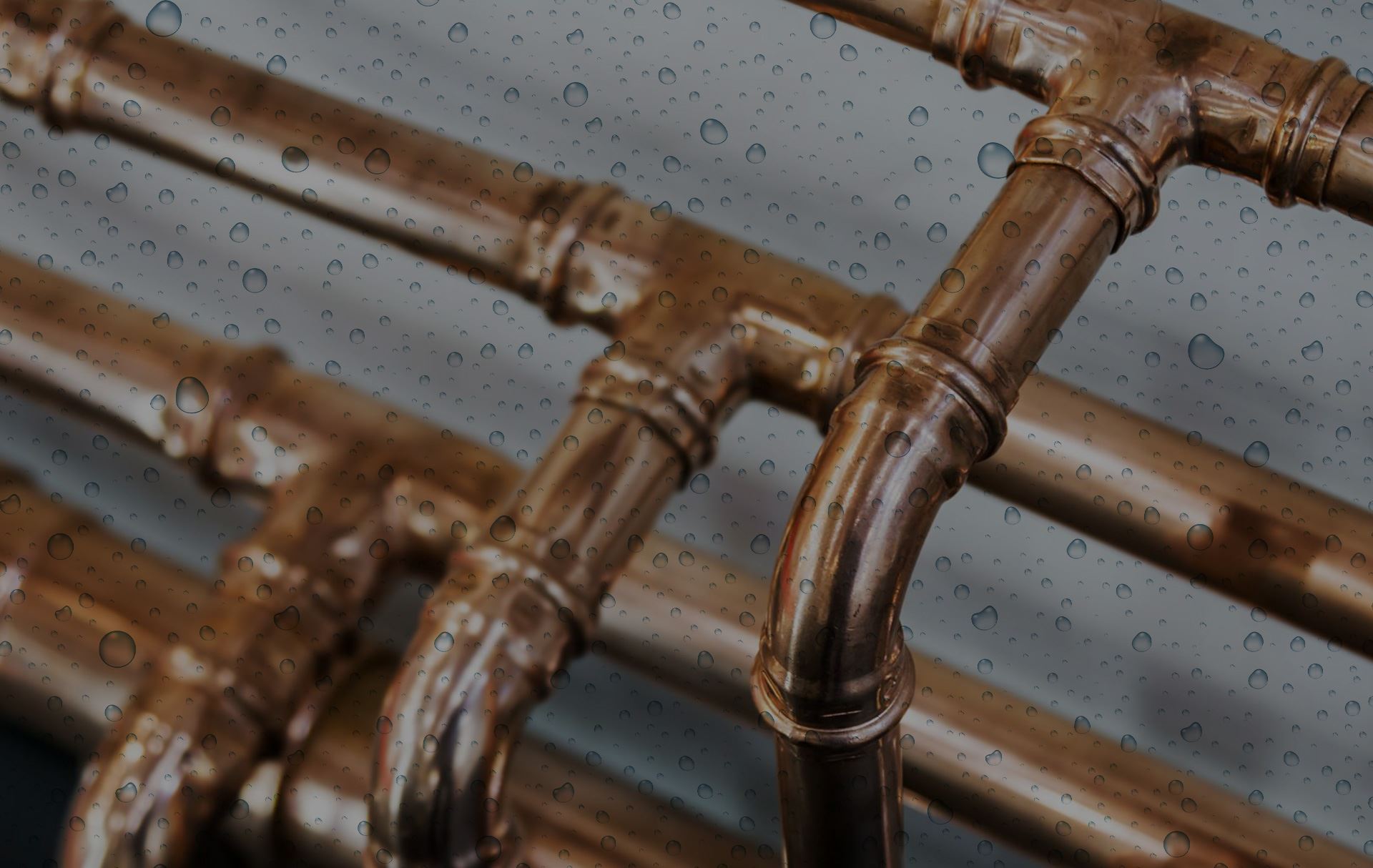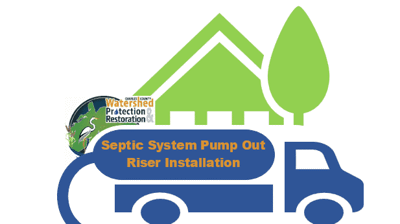
Drain Cleaning in Washington, D.C.
Keep Your Plumbing System Running Smoothly With Professional Drain Clearing & Maintenance
A clogged drain is, at best, a serious inconvenience. At worst, it can cause property damage. Businesses can suffer significant losses if drains are not cleaned out in a timely manner and then properly maintained. At Emerald Plumbing Co., Our drain clearing service in Washington, D.C., has over 20 years of experience serving the areas of Alexandria, Fairfax, and Silver Spring. We’re here with prompt service, dependable work, and a long-term maintenance program. Our commitment to staying current with industry advancements ensures that we utilize the most effective equipment and techniques, providing our clients with superior service. Whether dealing with stubborn grease clogs or invasive tree roots, our skilled team is equipped to handle it all efficiently. By leveraging cutting-edge technology, we offer environmentally friendly and cost-effective solutions, meeting property owners' evolving needs. Making us the trusted drain cleaning Washington, D.C. residents call.
Clogged drains in D.C.? Get fast, effective drain cleaning now! Call (240) 345-9920 or fill out our online form.
8 Signs You Need Drain Cleaning Services
- Slow Drainage: When water takes longer than usual to drain from sinks, showers, or bathtubs, it could indicate debris buildup in the pipes.
- Foul Odors: Unpleasant smells from drains may signal accumulated food, hair, grease, or organic matter, potentially leading to bacterial growth and odors.
- Gurgling Noises: Hearing gurgling or bubbling sounds when flushing toilets or running water could suggest air trapped in pipes due to partial blockages.
- Water Backup: Water backing up into sinks, showers, or toilets indicates a clog in the plumbing system, potentially causing inconvenience and water damage.
- Multiple Clogged Fixtures: Simultaneous clogs in various fixtures, such as sinks and bathtubs, may indicate a blockage in the main sewer line, requiring professional attention.
- Frequent Clogs: Dealing with recurrent clogs despite DIY methods suggests underlying issues that require professional drain cleaning for thorough resolution.
- Standing Water: Puddles near floor drains or sewer cleanouts could signal a sewer line blockage, necessitating immediate attention to prevent sewage backups.
- Old Pipes or Plumbing System: Older pipes and plumbing systems are more prone to corrosion and buildup, making regular drain cleaning essential to prevent serious blockages and prolong the system's lifespan.
These indicators are common signs that it might be time to consider professional drain cleaning services to ensure your plumbing system functions smoothly and efficiently. Early detection and intervention are key in avoiding extensive damage and costly repairs, maintaining the integrity of your property, and ensuring safety.
Consequences of Clogged Drains in D.C.
The problems property owners can encounter due to a drain clog are numerous. They can start with the fact that drain clogs can leave a nasty smell. The odor from sewer gas can leave anyone on the property nauseous and sick. Furthermore, the failure to drain wastewater properly will attract pests, be a breeding ground for germs, and make food more likely to be contaminated.
All of these are serious enough for anyone, whether a homeowner or a business owner, to take prompt action. For someone running a business, though, the risks are just starting. Additional consequences unique to commercial drainage systems include the following:
- The business might be shut down for health code violations. Getting re-inspection done is often a bureaucratic nightmare, preventing a fast reopening.
- The grease trap can malfunction, leading to both sewage backups and fines from the health department, which can be costly.
- Water overflow and grease-coated floors are safety hazards, leading to increased liability exposure.
- All of the above makes for an unpleasant customer experience, leading to bad word-of-mouth, lost revenue, and a long road to rebuilding one’s reputation and brand.
- Immediate repairs required are often costlier than what might have been needed with regular checkups.
These are more than serious problems. These are existential threats to the life of a business. We’re here to help prevent them from happening. Our preventative maintenance services are tailored to anticipate potential issues before they escalate, providing business owners with peace of mind and allowing them to focus on their core operations without interruption.
What Causes Clogged Drains?
Drains can become clogged for various reasons, depending on the type of drain and the substances that enter it. Understanding these causes is crucial for effective drain clearing in Washington, D.C.
Here are some common reasons why your drain might be clogged:
- Hair: In bathroom sinks, showers, and bathtub drains, hair is a frequent culprit for clogs. Over time, hair can accumulate and create a blockage in the pipes.
- Soap Scum: Soap residue can combine with minerals in the water to form a sticky film on the walls of the drainpipe. This film can trap other debris and contribute to clogs.
- Grease and Cooking Oil: In kitchen sinks, grease, and cooking oil are major causes of clogs. They can solidify in the pipes and trap food particles and debris.
- Food Particles: Food debris can get caught in kitchen sink drains, leading to clogs. Always use a sink strainer to prevent larger food particles from entering the drain.
- Foreign Objects: Items like jewelry, small toys, or other objects accidentally dropped into a sink or toilet can obstruct the drain.
- Toilet Paper and Hygiene Products: Flushing excessive toilet paper, wipes, or hygiene products can cause clogs in toilet drains, especially in older plumbing systems.
- Tree Roots: In outdoor sewer lines, tree roots can infiltrate pipes through small cracks or joints, leading to blockages.
- Mineral Buildup: Hard water can leave mineral deposits in pipes over time. These deposits can narrow the pipe's diameter, causing reduced water flow.
- Diapers and Baby Wipes: Flushing diapers and baby wipes down the toilet can lead to severe clogs due to their non-biodegradable nature and propensity to expand when wet.
- Toiletries: Items like cotton balls, cotton swabs, and dental floss should not be flushed down the toilet, as they do not disintegrate easily and can contribute to clogs.
- Sediment or Debris: In older or poorly maintained plumbing systems, sediment, and debris can accumulate in pipes, eventually leading to clogs.
- Collapsed or Misaligned Pipes: Structural issues, such as collapsed or misaligned pipes, can obstruct the water flow and cause clogs.
- Inadequate Slope: If the pipes are not correctly sloped to allow gravity to assist in draining water, it can lead to standing water and clogs.
Understanding the cause of the clog is essential to address the issue effectively. Recognizing and addressing these issues promptly can help to avoid more significant problems and the potential for expensive repairs. Regular maintenance and inspections can ensure that your plumbing system remains in top condition, catching problems before they escalate into serious issues.
Preventing clogs in the first place through proper maintenance and responsible usage is always a good practice. Implementing routine checks and immediate repairs keeps everything running smoothly and extends the life of your plumbing system, providing a sustainable and efficient solution for your property.
Prevent future clogs with our expert drain cleaning. Call (240) 345-9920 or fill out our online form for maintenance in Washington, D.C.
Our 5-Step EZ Flow Drain Maintenance Program
Our EZ Flow Drain Maintenance Program is designed to simplify the care of your plumbing system through regular inspections, cleaning, and timely interventions. This holistic approach keeps your drains clear and identifies potential issues early, preventing costly disruptions to your operations. Enrolling in this program ensures that your plumbing system operates efficiently year-round, giving you more time to focus on growing your business without any setbacks.

Did we mention “You get peace of mind” twice already? Good. Let’s do it a third time. As business owners, we know that you have enough on your plate each day without worrying about something as basic as drain clogs. Let us worry about that. You can focus on providing your product or service.
Understanding Drain Regulations and Seasonal Challenges in Washington, D.C.
Drain cleaning in Washington, D.C. is subject to strict regulations to uphold environmental and public health standards, requiring compliance with federal, state, and local laws for waste disposal to prevent water supply and ecosystem contamination. This includes preventing hazardous substances from entering the public sewer system, with businesses adhering to EPA guidelines to avoid fines and legal consequences. Partnering with a licensed provider like Emerald Plumbing Co. ensures compliance, protecting you from liabilities and contributing to a clean environment. Simultaneously, the city's seasonal variations, from humid summers with increased water usage and potential flooding to cold winters with risks of frozen pipes, significantly impact plumbing systems. Proper drain clearing, seasonal inspections, pipe insulation, and regular maintenance are crucial. By working with trusted professionals like Emerald Plumbing Co., residents can ensure their plumbing is prepared for all seasonal challenges, maintaining durability and efficiency year-round.

Frequently Asked Questions
How Often Should Drains Be Cleaned?
Regular drain cleaning is recommended to maintain a trouble-free plumbing system. For residential properties, cleaning every 18 to 24 months is common, although this can vary depending on the system's age and usage. Homes with older plumbing or a history of frequent clogs might benefit from more frequent cleanings. Commercial properties, especially restaurants, and businesses with high water usage, may require monthly inspections and clean due to the higher risk of blockages caused by grease, oils, and food particles.
What Are the Most Common Drain Cleaning Methods in D.C.?
Several methods exist for effective drain cleaning, the most common being snaking, hydro jetting, and chemical treatments. Snaking involves using a flexible, auger-like tool to remove obstructions from pipes. It's often effective for minor clogs caused by hair or small debris. Hydro jetting, on the other hand, uses high-pressure water jets to dislodge stubborn blockages and clean pipe walls thoroughly, ideal for grease or heavy sediment build-up. Chemical treatments involve specially formulated solutions to break down tough deposits but should be used cautiously as they can sometimes damage older pipes.
Can I Use Store-Bought Drain Cleaners?
While store-bought drain cleaners can be a quick fix, their long-term use is generally discouraged. These products often contain harsh chemicals that can corrode pipes over time, leading to leaks and other plumbing issues. Moreover, they might not fully resolve significant blockages, masking the symptoms rather than addressing the root of the problem. Professional intervention is recommended for persistent clogs to ensure thorough cleaning and reduce the risk of damage.

Work With Emerald Plumbing Today!


The Latest News
Recent Blog Posts
-
 The Top Signs You Need Professional Drain RepairRead More
The Top Signs You Need Professional Drain RepairRead More -
 Tips for Keeping Your Pipes from Freezing in the WinterRead More
Tips for Keeping Your Pipes from Freezing in the WinterRead More -
 Is Vinegar Safe for Septic Systems?Read More
Is Vinegar Safe for Septic Systems?Read More -
 Why Your Business Should Prioritize Regular Plumbing MaintenanceRead More
Why Your Business Should Prioritize Regular Plumbing MaintenanceRead More -
 Tips to Reduce Water Usage & Lower Your BillRead More
Tips to Reduce Water Usage & Lower Your BillRead More -
Smart Home Plumbing: Integrating Technology for Efficiency and ConvenienceRead More
-
 Tips for Keeping Your Pipes from Freezing in the WinterRead More
Tips for Keeping Your Pipes from Freezing in the WinterRead More -
 Grease Trap and Sewer Line CleaningRead More
Grease Trap and Sewer Line CleaningRead More -
 Grease Trap Replacement in North East, Maryland – Live VideoRead More
Grease Trap Replacement in North East, Maryland – Live VideoRead More -
 Guidelines For Maintaining Your Septic System – Anne Arundel County Department of HealthRead More
Guidelines For Maintaining Your Septic System – Anne Arundel County Department of HealthRead More -
 Charles County Maryland Septic System Reimbursement ProgramsRead More
Charles County Maryland Septic System Reimbursement ProgramsRead More -
 How Septic Systems WorkRead More
How Septic Systems WorkRead More -
 Why does my restaurant need a grease trap?Read More
Why does my restaurant need a grease trap?Read More -
 How to Identify a Sewer Line BreakRead More
How to Identify a Sewer Line BreakRead More

.2410310653088.jpg)


.2403120933550.jpg)

.2309061256550.jpg)





